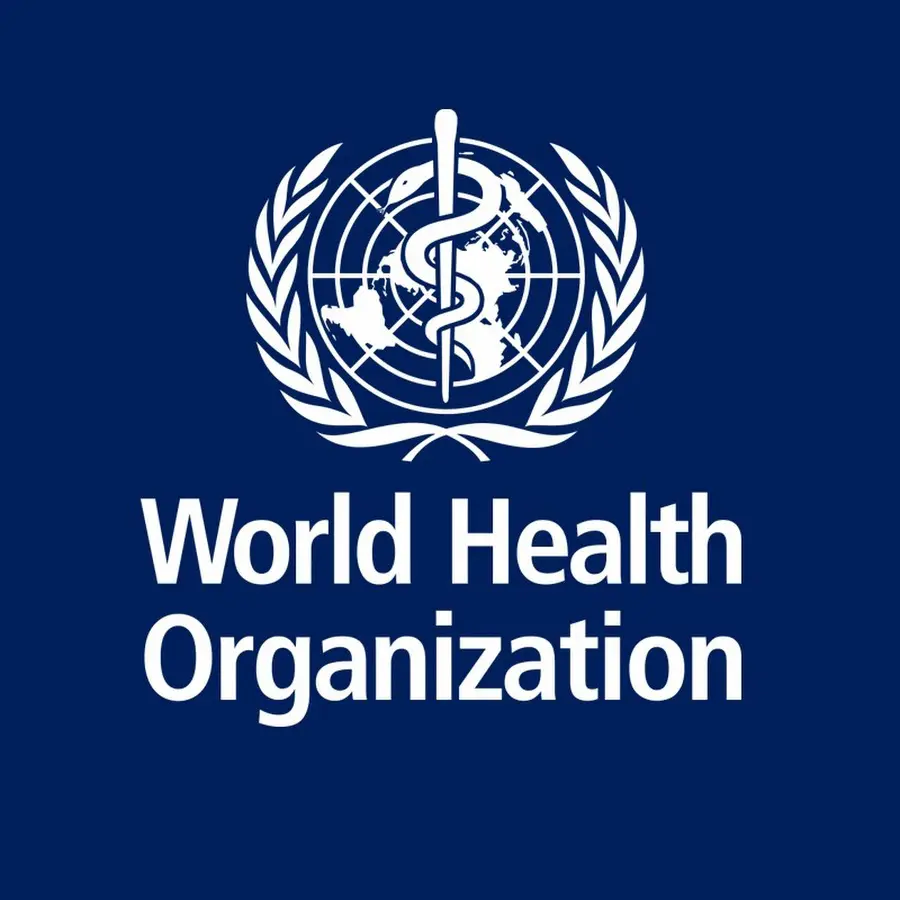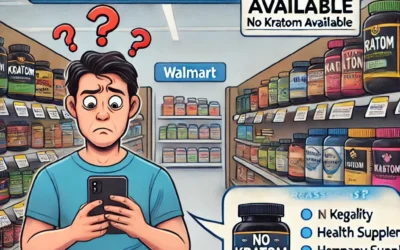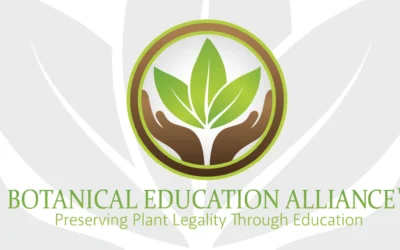World Health Organization Kratom Ban Updates
Kratom, a plant native to Southeast Asia, has been under global scrutiny, with concerns about its safety and potential for misuse. Recently, the World Health Organization (WHO) has taken an interest in kratom, prompting a review of its legal status and potential for regulation. One significant aspect of this review is the WHO’s updated 8-Factor Analysis, which plays a crucial role in determining kratom’s future.
The 8-Factor Analysis is a method used by the WHO to evaluate the risks and benefits of substances like kratom. This comprehensive analysis considers various factors such as abuse potential, pharmacological effects, and legitimate medical use. Kratom advocates argue that the plant has therapeutic benefits, such as pain relief and mood enhancement, while critics point to its potential for dependency.
As the WHO reviews kratom, many users and supporters fear a potential global ban, which could affect millions of people who rely on the plant for its natural benefits. Stay updated on the latest developments surrounding the WHO’s decision and how it could impact kratom’s legality worldwide.
By staying informed on the WHO’s kratom ban discussions and understanding the 8-Factor Analysis, you’ll have a clearer picture of kratom’s future on the global stage.
How to comment about kratom?
I wanted to update everyone on what is going on with the Kratom comment periods. It looks like the FDA is going to open the comment period back up until August 23rd. Kratom, the world health organization and people who use kratom need to come together and discuss why kratom is so important to the lives of so many people.
Click on the kratom comments and the link will be connecting you to the official federal government websites. Make sure not to share sharing sensitive information. There were a few press announcements on federal government sites about the extended comment period, but never the press we would like to see. We would like to see international control of products and proper routes for shipments.
Kratom Import Alert!
The Kratom Import Alert makes it difficult for legitimate vendors to ensure expensive shipments are not being seized. These shipments can cost a lot of money and neither farmers or vendors want to take a chance with the import alert the way it is currently. I almost feel that when negative articles are circulating every media outlet picks it up, but when a positive story or good news comes along we get crickets.
Comments are finished being collected on the American Kratom Association’s website and will be submitted to the World Health Organization and the FDA. The Food and Drug Administration opened a public comment period in 2016. On August 30, 2016 the Drug Enforcement Administration announced its intent to schedule kratom!
We then see that The DEA Changes Its Mind on Kratom and it was not scheduled and more research is being conducted.
World Health Organization Kratom Peer review report
Kratom, mitragynine, 7-hydroxymitragynine pre-review report
There is an issue and something more is going on then public health!
We have been through this type of situation in the past, but this time the FDA is getting some big guns involved globally. We need to get everyone together to fight these ongoing fights. We need the United States, Indonesia, Thailand, and all other Southeast Asian countries to work together now.
ASEAN, also known as the Association of Southeast Asian Nations, is a regional intergovernmental organization comprising ten countries in Southeast Asia. These countries include Brunei, Cambodia, Indonesia, Laos, Malaysia, Myanmar, the Philippines, Singapore, Thailand, and Vietnam. ASEAN was established on August 8, 1967, with the aim of promoting economic growth, social progress, and cultural development in the region.
In the context of the given statement, ASEAN’s involvement in the battle at hand can be seen as highly beneficial. The organization’s collective efforts and cooperation among member nations can contribute significantly to addressing the challenges and finding effective solutions. ASEAN provides a platform for dialogue, collaboration, and mutual support, enabling member countries to work together towards common goals.
Furthermore, the mention of mitragyna speciosa, commonly known as kratom, in relation to withdrawal symptoms and cravings suggests a potential connection to substance abuse or addiction. Mitragyna speciosa is a tropical tree native to Southeast Asia, and its leaves have been traditionally used for medicinal purposes. However, in recent years, concerns have been raised about its potential for abuse and addiction.
The statement implies that there have been case reports suggesting that the effects of mitragyna speciosa do not include withdrawal symptoms and cravings. This could indicate that further research is needed to fully understand the potential risks and benefits associated with the use of this substance. It also highlights the importance of conducting comprehensive studies and gathering more evidence to inform public health policies and interventions related to substance abuse.
In conclusion, ASEAN’s involvement in the battle at hand can be seen as a significant advantage, given its role in promoting regional cooperation and addressing common challenges. The mention of mitragyna speciosa and its effects on withdrawal symptoms and cravings raises important questions about substance abuse and addiction, emphasizing the need for further research and evidence-based approaches in this area.
Kratom WHO ban
The World Health Organization (WHO) reviewed kratom during its annual assessment of psychoactive substances and, in December 2021, concluded that kratom does not pose a threat that would warrant a global ban. Despite discussions and concerns about its use, the WHO’s decision reflects a recognition of the lack of evidence to suggest a significant harm that would necessitate such action
This decision was welcomed by kratom advocates, as it acknowledges the plant’s use by millions for relief and as an alternative without recommending international restrictions .
World Health Organization Decides Not to Call for Global Kratom Ban
As of Summer 2022, we’ve successfully navigated one significant challenge, yet the landscape is increasingly filled with anti-kratom sentiment. The rise in trolling, both on social media and via email, is unmistakable, and conversations with peers reveal this is a widespread issue.
In a nation that values free speech, everyone has the right to their opinion. It’s important to remember, though, that we all abide by the same laws and share the same freedoms. The hope is that those spreading falsehoods will reconsider their stance when faced with the united and informed response of our community. We’re no longer standing by in the face of misinformation and baseless accusations.
Our journey since 2016 has been tumultuous but enlightening. We’re armed with the truth and the support of long-time kratom users who attest to its safety. Now, with the backing of scientific research more solidly than ever, the narrative is changing. Even previous warnings about kratom, such as those from FDA Commissioner Scott Gottlieb MD regarding its purported risks, are now seen in a different light, appearing to lack a foundation in robust scientific evidence.
Kratom 8 Factor Analysis
In the United States, the “8-factor analysis” is a term used to describe an evaluation conducted by the U.S. Drug Enforcement Administration (DEA) when considering the scheduling or rescheduling of a substance under the Controlled Substances Act (CSA). The 8-factor analysis examines eight factors listed in the CSA. It determines whether a substance should be classified as a controlled substance. The substance is then placed into one of the five DEA schedules, which range from Schedule I to V.
These eight factors are Below:
- Actual or relative potential for abuse
- Scientific evidence of its pharmacological effects
- The state of current scientific knowledge regarding the drug or substance
- History and current pattern of abuse
- Scope, duration, and significance of abuse
- What, if any, risk there is to the public health
- Psychic or physiological dependence liability
- Whether the substance is an immediate precursor of a substance already controlled under the CSA
In the context of kratom, the DEA had considered scheduling it as a controlled substance several times in the past. However, due to public outcry and the submission of scientific research, the DEA withdrew their intent to schedule kratom in 2016, and kratom remains legal in most parts of the United States (though there are some local and state restrictions).
In the case of kratom, the DEA had previously considered classifying kratom as a Schedule I substance, which would place it in the same category as drugs like heroin and LSD. However, after a significant public outcry and engagement from various stakeholders, including advocacy groups and researchers, the DEA decided to delay its decision and instead opened a public comment period.
As part of this process, the DEA requested an “8 Factor Analysis” on kratom. This analysis involves evaluating eight specific factors, including the substance’s potential for abuse, its pharmacological effects, the scientific evidence of its medicinal uses, and the risks associated with its use, among others. There has been an updated 8-factor analysis on kratom in 2021 and the analysis states what previous studies have concluded:
In conclusion, we do not recommend scheduling kratom or any of its alkaloids in the CSA. We do recommend accelerated research to address the many questions raised in this review, including support of the potential development of new medicines with potential better safety and/or efficacy profiles for a variety of diseases.
Finally, we recommend that the US federal government and other nations consider approaches to kratom regulation as are presently being pioneered in five US states.
Will kratom get banned?
I remain optimistic that kratom will not face a ban. The responsible use of kratom tea proves to be a valuable asset in one’s wellness regimen.
For those who view kratom skeptically, I suggest observing the comings and goings at your local liquor store. There, you’ll notice a mix of emotions – some seek joy, while others may be looking to numb their feelings. But does the reason truly matter?
Alcohol is regulated and restricted to individuals over the age of twenty-one, despite its well-documented history of causing harm and even death, yet it remains legal. This highlights the importance of advocating for responsible kratom use.
The kratom plant, Mitragyna Speciosa, contains natural compounds like mitragynine and 7-hydroxymitragynine. Recent studies have clarified that 7-hydroxymitragynine is not prevalent in the plant, contributing to the ongoing discussion about kratom’s safety profile.
People will abuse and use anything they can get their hands on in this world. Sugar, cocaine, coffee, alcohol, and whatever else you can think of that can or is an issue. We must lock up and ask for Identification to purchase cold medicine now.
Why? People abused it! I would love to see more programs focused on substance abuse and the mental health challenges that cause addictive behavior.
My point is that we cannot ban everything in the world. People will abuse anything and everything. Education about plants and how they have been used traditionally for thousands of years is what we should be focused on as a society. I do see much more return to natural plant medicine over the past few decades, but we have a long way to go.
I will continue to fight for every consumer and the right to use plants as an option for their own personal use. The more we make, the more we donate to Keep Kratom Legal. This usually falls in the range of about 10% of our sales.
Ten percent is what we pledge towards the American Kratom Association. We send out an additional $500.00 per month to the University of Florida’s Pharmacology program for kratom research. We believe strongly that kratom research should be our top priority.
Conclusion
As the World Health Organization continues its review of kratom through the 8-Factor Analysis, the future of this natural plant remains uncertain. While some express concerns over its potential for abuse, many advocates highlight its therapeutic benefits and long-standing use in traditional medicine.
It’s crucial for kratom users, vendors, and supporters to stay informed about the evolving legal landscape. Whether or not a global kratom ban is enforced, understanding the WHO’s analysis and findings will help navigate any potential changes that could impact access to kratom worldwide.
By staying engaged and informed, we can all contribute to a balanced and evidence-based approach to kratom regulation.






Keep up the good fight. You are doing so much for treatment and providing a voice for all of us that don’t have a platform. Thanks for all you do.
You’re very welcome. I will always do what I can to make sure that kratom is here for the longhaul. Kratom is truly a God send for me, you and many others ???? and I want it to be here for future generations.
God Bless you and be safe ????
Just ordered from you today for the first time. Ordered the VIetnam I once loved so much, but have not had the privilege of being able to find in the last couple of years. I submitted my comments a week or two ago and hope this stays legal for many years!
We have sourced the vietnam kratom since we began. We will continue to have it in stock for a long time:)
Thank You for being here with us.
I am a paralyzed crime victim. I was mugged on Long Island, NY in 1979.
Kratom has made my quality of life alot better since I’m taking Kratom and vitamins and supplements.
Kratom has changed my life in a very positive way.
I hope that it doesn’t get banned .
Christian Cook
Thanks for all you guys do at COB. I’ve been using Kratom since I first found your website back in 2016 and you always worked with me to make sure I could pay when the credit card system wouldn’t work and that always meant so much. I just ordered my first batch since 2018 so I’m SUPER stoked and can’t wait for it to come 🙂
We thank you for being here with us and trusting us. We promise to always do our best for you ❤